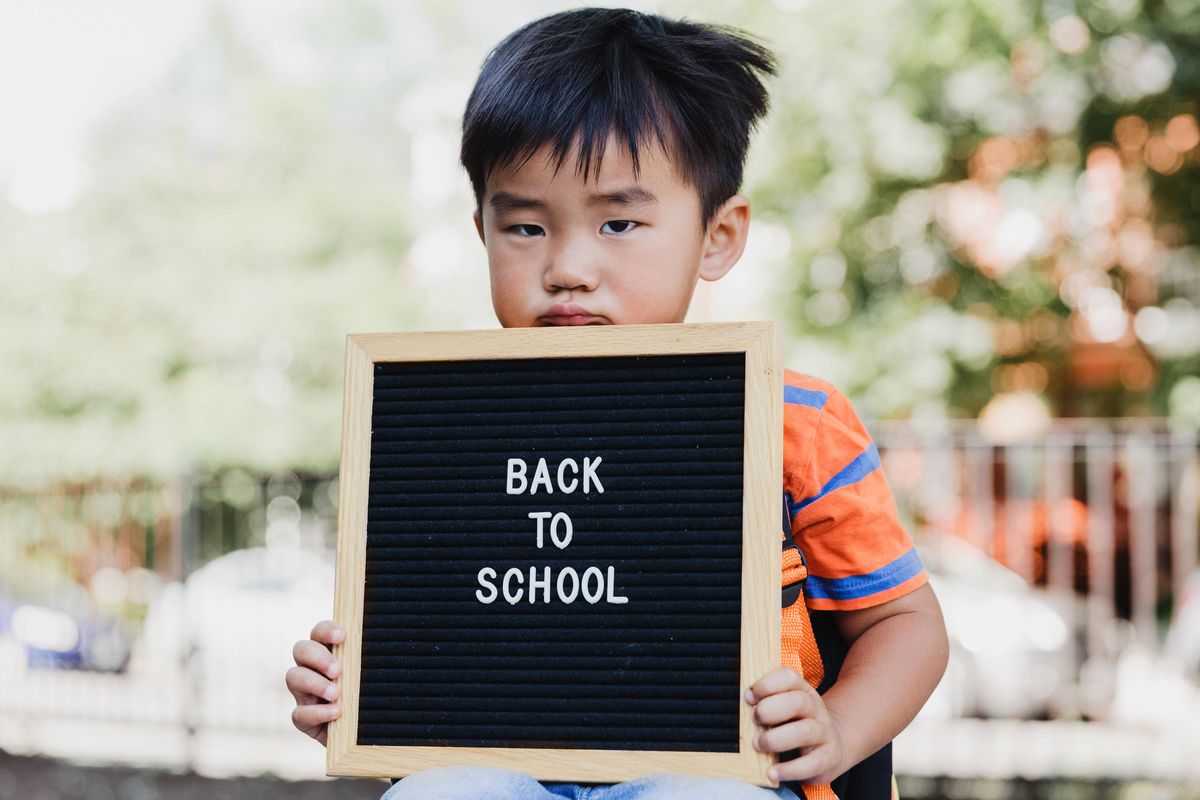
School can be a ton of fun, but for many kids, it can also be a pretty big source of stress and anxiety as well.
A little stress now and then is an unfortunate fact of life, but it seems like kids are more stressed than ever these days. Overwhelming, toxic stress can actually affect how a child’s brain grows and develops and can increase the risk for mental health issues later in life.
“The good news is the brain is malleable,” said Bruce Compas, a psychologist at Vanderbilt University who completed a major review of childhood coping strategies. Good coping skills can be taught and, once learned, can benefit a child for the rest of their lives, Compas said in a press release.
We reached out to experts to see what advice they’d have for parents who think their kids might be struggling with stress or anxiety. Here is what they had to say:
1. Be specific about what you’ve noticed about your child’s stress level.
When a parent notices their kid is stressed or anxious, it can be tempting to jump to conclusions or get caught up in wondering “what if.” “Don’t go down the rabbit hole,” says Debra Kissen, clinical psychologist and director at Light on Anxiety Treatment Center of Chicago.
Instead, parents should focus on the specific behaviors they’ve noticed. If your kid suddenly doesn’t want to go to parties, for example, approach any potential conversation on that level, then build solutions around the one stressor.
2. Don’t just reassure: problem-solve.
“It’ll be OK” might seem like three magic words, but kindly reassurances aren’t the same permanent fixes, says Jill Emanuele, senior director of the Mood Disorders Center at the Child Mind Institute. Instead, parents should talk with their kid and try to come up with a solution to whatever’s bothering them.
“Help your child to acknowledge the specific worries with a statement like, ‘I hear that you are worried about this. How can I help?'” Emanuele says.
Multiple experts, including Compas, echoed this sentiment. In general, it’s better for kids to adapt or confront problems rather than avoid or repress their feelings.
3. Plan and practice!
“My one piece of advice: practice!” said Dawn Huebner, a psychologist who’s written multiple books for kids and adults, including “Outsmarting Worry.”
Don’t avoid awkward conversations, says Huebner, and once you’ve come up with a potential solution, try it out. For example, if your kid is nervous about a new school, you could see if school administrators will let you take a tour before the school year begins. Then follow up in a few days to see how the plan worked.
4. Repeat the serenity prayer.
“Change the things you can, accept the things you can’t, and have the wisdom to know the difference between them,” Compas says.
There’s a lot of good thinking in that old prayer. Not every problem or stressor is going to have an easy solution, and it can get frustrating to continually beat your head on a brick wall. Sometimes the change will need to come from within, whether that’s adapting expectations or trying out a different outlook.
5. Don’t ignore the bright side.
Tackling the problem and facing your fears is a good idea, but looking at positives can help too, says Amy Przeworski, an associate professor at Case Western Reserve University. School can mean new friends and new adventures. A little encouragement doesn’t hurt, either.
“To remind my daughter of just how strong and brave she is, I often put a note in her lunch bag on the first few days of school to tell her that I love her, that I’m proud of her and that I can’t wait to hear the amazing things that she has done at school,” she says.
6. Try to stay calm and collected yourself.
Kids, especially little ones, can key in on what a parent is feeling. If you yourself are nervous or stressed, your anxiety might rub off on the child.
“What we know is that when my attachment figure, my mommy, my daddy, my grandma who raises me is calm, I feel safer and more sound and ready to learn,” says Laura Martin, a mental health specialist at the Verner Center for Early Learning.
7. Remember that you’re not alone.
It can feel overwhelming to see your kid struggling, but remember that you don’t have to do this alone. There are many resources out there on sites like the Anxiety and Depression Association of America to help parents talk to their kids or find help. Mental health professionals can help too.
8. Finally, don’t forget about happiness.
Mark Holder is a researcher at the University of British Columbia. He doesn’t study stress or anxiety — his focus is happiness. He says this:
“My advice for children’s well-being, if I am only allowed one piece, is to support your children in nurturing their quality friendships,” Holder says. “Whether this is encouraging visits with friends, joining a sports team or hiking club, or volunteering with others, activities that foster meaningful friendships are critical to children’s well-being.”
This article originally appeared on 07.28.17
